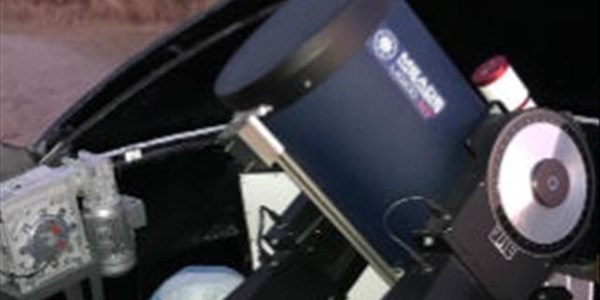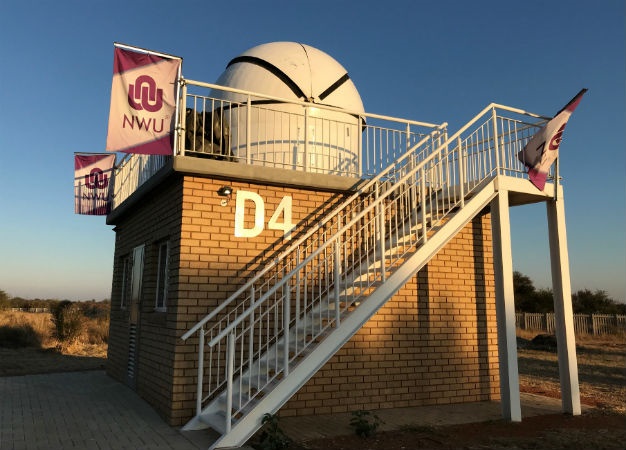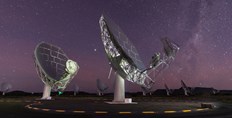Local News
NW Mahikeng campus first astronomy observatory─── 07:48 Sat, 01 Sep 2018

North West University's Mahikeng campus has become the first historically-disadvantaged tertiary institution in South Africa to develop an observatory for astronomy research.
Its brand new telescope, a 16-inch Meade LX200 GPS, is central to the Mahikeng Astronomy Telescope (MAT) programme, and is expected to be launched on September 7.
"The North West University regards it as one of the important programmes we have. Furthermore, astronomy is an area of science that easily attracts the minds of young people, hence it is a very good vehicle for reaching out to them and attracting them into science in general," Professor Thebe Medupe told News24 about the MAT.
As the person who developed the astronomy programme in the physics department at the university, Medupe said the telescope would also act as an outreach instrument and that there would be monthly viewings for the public.
"It also is a sense of pride for the people of the small town of Mahikeng that they have this high-tech facility that they can enjoy. This facility allows young South Africans to dream big and to see themselves as scientists and technologists of the future. We are like a spark that will light up and bring us a brighter future for the whole country."

The launch of the MAT is intended to boost the number of students studying astronomy at the institution.
Currently, there are four astronomers with PhDs, one student completing his PhD and two space scientists in the physics department.
But Medupe, who was inspired by astronomy when he sighted Halley's Comet in 1986, has big plans for expansion.
"It is my hope that we can use this momentum to build a centre for stellar and planetary astrophysics of note. It will be unique as there is no such centre in South Africa.
"With our planned centre, we would like to attract top astronomers from all over the world to come and work with us, and bright young African minds to want to study at our university at the Mahikeng campus," he said.
South Africa is driving astronomy with the launch of mega-projects like the MeerKAT 64 dish radio array in the Northern Cape and later, the SKA which will consist of more than 3 000 linked radio telescopes.
Science and Technology Minister Mmamoloko Kubayi-Ngubane, who is expected to launch the instrument on Friday, previously stated that astronomy was a vehicle to drive toward the goal of 100 PhDs per million of population by 2030.
In the SKA SA programme alone, more than 1 000 grants have been awarded for the study of astronomy and engineering – from undergraduate to post-doctoral level.
The primary area of study for the MAT will be bright star research and its ability to be operated remotely will allow access from anywhere in SA.
"It also motivates young black South Africans to want to take up physics research as a career, and it attracts young people in general to science," said Medupe.
"The fact that MAT is in Mahikeng, also makes it easy for us to recruit young postgraduate students to want to stay here for their postgraduate studies, and is attractive to students from elsewhere also. The increased interest should have an impact in related subjects such as applied mathematics and computer science."
Co-funding for the instrument comes from the Department of Science and Technology and the university and Medupe hopes that it will inspire other historically-disadvantaged tertiary institutions to drive astronomy.
"The telescope on its own costs nearly R300 000, excluding state-of-the-art camera and other auxiliaries we have and are in the process of adding. The building (the dome and the control room) is a separate expense," said Medupe.
Medupe served as a research fellow at the University of Cape Town and his research is included in the book African cultural astronomy: Current archaeoastronomy and ethnoastronomy research in Africa.













